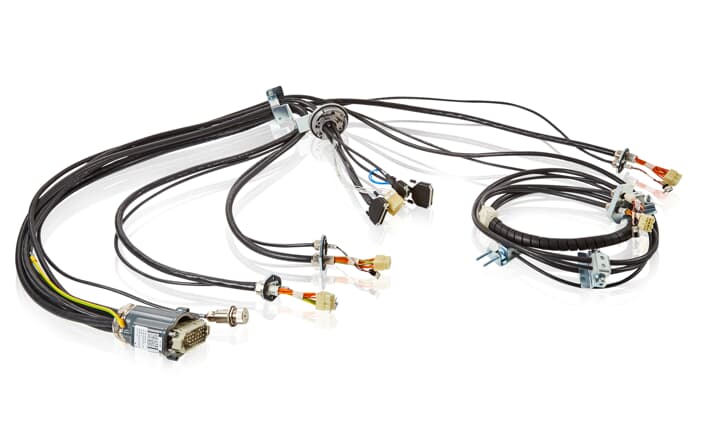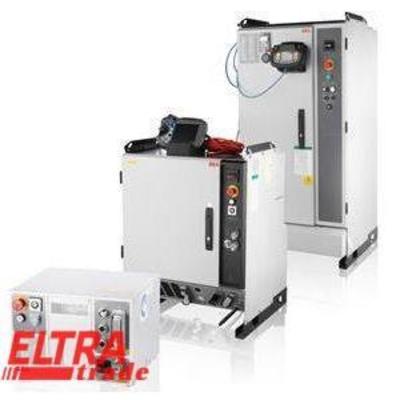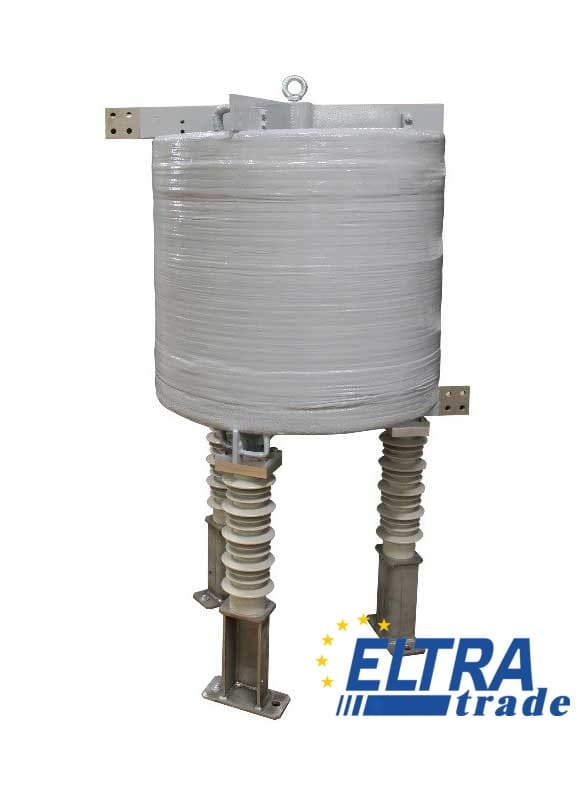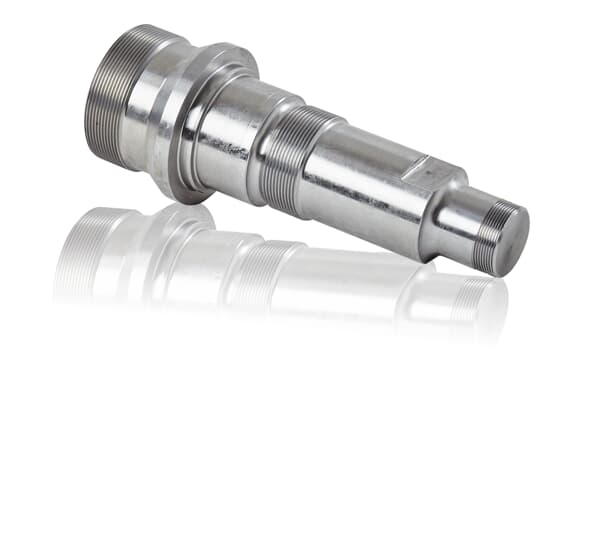ABB Robotics
Manipulator harness ax 1-6
- DSQC 1006 Devicenet connection Board
ABB Core Reactor
Teach Pendant device
- DSQC 663 Electric Drive Unit
ADJUST. NEEDLE BEARING
Shaft
Sealing ring
Ring
Sealing assembly
- AL9-30-01 voltage - 24 V DC Contactor Block
- CA5-10 Controller Contact Block (aux.)
- A110-30-00 Rated Voltage 220-230V (frequency 50Hz)/230-240V (frequency 60 Hz) Contactor Block
- Molded Circuit Breaker - S200 Series - 1 Pole - C - Current 2A
- Molded Circuit Breaker - S200 Series - 1 Pole - C - Current 4A
- Molded Circuit Breaker - S200 Series - 3 Pole - C - Current 10A
- Conn. Kit
- DSQC 625 Computer controlleRS components: power supply
- DSQC 627 controlleRS components: power supply
- connector bridge type / panel board
- Harn.-Ext. customer connection
- Computer AC+ technology
- Computer BD+ technology
- Harn.-CP/CS/PBUS length - 22m
- touch-sensitive screen
- Display Unit
- DSQC 572 Devicenet connection Board
- Harn. Con. panel basic
- Harn.-Protocol Protocol GTPU DU.
- Transfomer device 13kVA (apparent power)
ABB is a leading global technology company that specializes in robotics and automation. The company was founded in 1988 as a merger between ASEA and Brown, Boveri & Cie (BBC), and the acronym ABB stands for ASEA Brown Boveri.
ABB is a pioneer in robotics and automation and has been at the forefront of the industry for over 100 years. The company offers a wide range of products and solutions for the robotics and automation industry, including industrial robots, control systems, and software.
Types of ABB robotics
ABB offers a wide range of products to meet the diverse needs of its customers. The company's industrial robots are known for their high precision, flexibility, and reliability and come in various types to suit different applications and industries.
- One of the key areas where ABB excels in robotics is in its industrial robots. They are known for their high precision, flexibility, and reliability. They are used in various applications, including material handling, welding, painting, and assembly. ABB robots are designed to work in harsh environments and are suitable for multiple industries, including automotive, electronics, food and beverage, and pharmaceuticals.
- Another type is mobile robots. These robots are designed for use in many environments, such as warehouses, factories, and ports. They can be used for material handling, transportation, and inspection. ABB's mobile robots are available in various forms, including AGVs (Automated Guided Vehicles) and AMRs (Autonomous Mobile Robots).
- In addition to industrial robots, ABB also offers a wide range of control systems and software for robotics and automation. These include motion control systems, safety control systems, and software for programming and monitoring robots.
- ABB also offers a wide range of services and support for its robotics and automation products, including installation, commissioning, training, and maintenance.
ABB robotics applications
ABB robotics is a versatile and powerful technology that is used in a wide range of applications across various industries. The company's industrial robots are known for their high precision, flexibility, and reliability, making them well-suited for use in various applications.
- One of the most common applications for ABB robotics is in material handling. ABB industrial robots move materials around a production facility, such as transporting raw materials to a production line or moving finished products to a packaging area. They are also used to load and unload materials from machines and conveyors.
- Another common application is welding. ABB robots are used to weld parts together precisely and consistently, reducing the need for human operators and increasing productivity. They also perform other types of joining, such as brazing, soldering, and adhesive bonding.
- ABB's industrial robots are also used in painting applications, where they apply paint to a wide range of surfaces, such as cars, appliances, and building components. They are also used for polishing, grinding, and other surface-finishing tasks.
- Another field is assembly applications, where robots are used to assemble products such as cars, electronics, and household appliances. They are also used for packaging products, such as filling and sealing bags, boxes, or bottles.
- Other applications include inspection, testing, and monitoring. ABB's robots inspect products and machines for defects, test products for quality, and monitor production processes to ensure they are running smoothly.
Purchasing an ABB Robot
When you need to buy ABB robot, several factors must be considered to ensure that you select the right robot for your application. Here are some key considerations to keep in mind:
- Application. The first step in selecting an ABB robot is to determine the specific application for which the robot will be used. ABB robots are used in various industries and applications, such as welding, material handling, packaging, and assembly. Knowing the specific application will help you select a well-suited robot.
- Payload. The next step is determining your application's payload capacity. ABB robots come in different payload capacities, from a few kilograms to several hundred kilograms. Knowing the required payload capacity will help you select a robot that can handle the load.
- Reach. The reach of the robot is another important consideration. ABB robots come in different reach lengths, from a few hundred millimeters to several meters. Knowing the required space will help you select a robot that can reach the required working area.
- Speed and accuracy. The speed and accuracy of the robot are also important factors to consider. ABB robots come in different speed and accuracy ratings, and you will need to select a robot that can meet your application's specific requirements.
- Environment. The environment in which the robot will be used is another important consideration. ABB robots are available in different enclosure types, such as waterproof, dustproof, and explosion-proof. Knowing the environment in which the robot will be used will help you select a well-suited robot for the task.
- Flexibility. The flexibility of the robot is another important factor to consider. ABB robots come with different degrees of flexibility, and you will need to select a robot that can meet your application's specific requirements.
- Support. ABB provides support and service for its robots, including training, installation, and maintenance. It's important to consider the level of support you need and select a robot that a local ABB service center supports.
- Budget. The budget is also an important consideration. ABB robots come in a wide range of prices, and you will need to select a robot within your budget.
In summary, purchasing an ABB robot involves considering several factors, including the application, payload, reach, speed and accuracy, environment, flexibility, and support. By carefully considering these factors, you can select the right ABB robot for your application and ensure it performs at its best.







